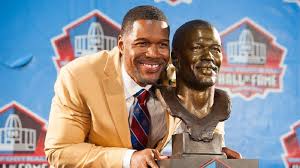
What a pleasure life would be to live if everybody would try to do only half of what he expects others to do. – William J.H. Boetcker
A story from Bits & Pieces tells of a manager and a sales rep standing and looking at a map on which colored pins indicate the company representatives in each area. “I’m not going to fire you, Wilson,” the manager said, “but I’m loosening your pin just to emphasize the insecurity of the situation.” That, of course, is a light-hearted reminder of the complexity of the employer/employee relationship.
Ask most people at their place of business what they need from their employers to be more successful or productive on the job and they will be quick to tell you. But when you ask them what they don’t need in order to be more productive is when things get interesting. Not long ago I asked a group of workers what they didn’t need in order to succeed. It was eye-opening exercise you should try.
Writing in a Harvard Business Review blog (http://bit.ly/1rEOqqS), Gretchen Gavett reported on the findings of the American Psychological Association’s new “Work and Well-Being Survey”. The good news out of their report is that 70 percent of people are satisfied with their jobs. But once you look below the surface there are a few troubling signs.
“Although almost two-thirds of employees feel their company treats them fairly,” writes Gavett, “other aspects don’t look so good. More than half feel like their employer isn’t open and upfront, a third feel that their organization isn’t always honest and truthful. One in four say they don’t trust their employer at all, and that’s a big deal.”
While intuitively we should know that open communication and trust are essential to good employer/employee relationships it still resurfaces as an issue to address. Knowing what your people need to succeed is important, but also knowing what they don’t need from you will certainly help. Here are four things to start with.
Your negative attitude
In as much as positive attitudes are contagious so are negatives ones. If you make it a habit to circulate among your people with a bad attitude, always finding fault, only focusing on what’s wrong, then your presence will be a demoralizing factor. The truth be told, your people may have every tool they need to succeed but if you have a negative attitude then it is hindering them. Among my informal survey this was the most cited response.
Your indifference
Everyone likes to be appreciated, valued, and wants to believe that their work makes a difference. But if you come across as indifferent to their work, ideas, and contributions then you are sending signals that they are unimportant to you. If you place no value in your people then how can you expect them to place value in their work? Indifference breeds indifference and the results will be devastating.
Your Obstruction
Your leadership style will either facilitate the progress of your people or it will stand in their way. If you burden people down with unnecessary policies and procedures, time-wasting meetings, or ill-timed interruptions then you are in the way. Your employees should not be made to pay the price for your poor time management skills. Don’t allow the “tyranny of the urgent” to be an obstruction to your people.
Your Inconsistencies
While most of your people will never speak up about this don’t mistake it for not noticing. Inconsistent actions by management always send the wrong message. When you communicate one thing and do another then you have planted doubt and mistrust in the minds of your people. Your employees don’t need mixed messages. It only creates confusion and animosity.
So, what’s the bottom line? What do your employees need? From their management team they need leaders with positive attitudes who see the good and bad and know how to address both. They need engaged leaders who know their business without being in their business. They need leaders who clear paths towards success and goal achievement without creating barriers. They need strong leaders who fairly and consistently put forth the values, vision, and best practices of the organization so that everyone can succeed.
What do you say?
©2014 Doug Dickerson
I welcome your feedback:
1. What additional things would you add to the list?
2. How can employers do a better job building relationships with their employees?
3. What are some best practices that you can share that have been helpful in your experience?
Please follow and like us:




